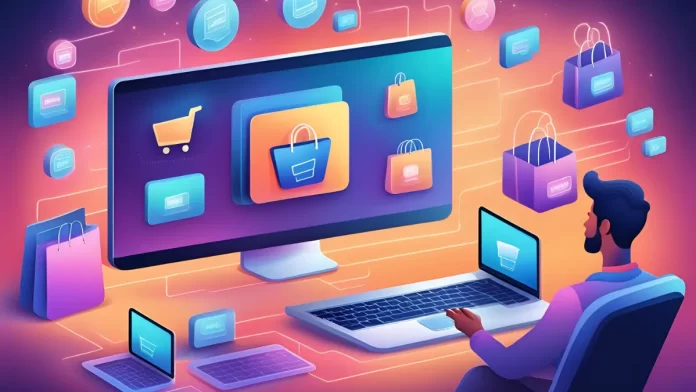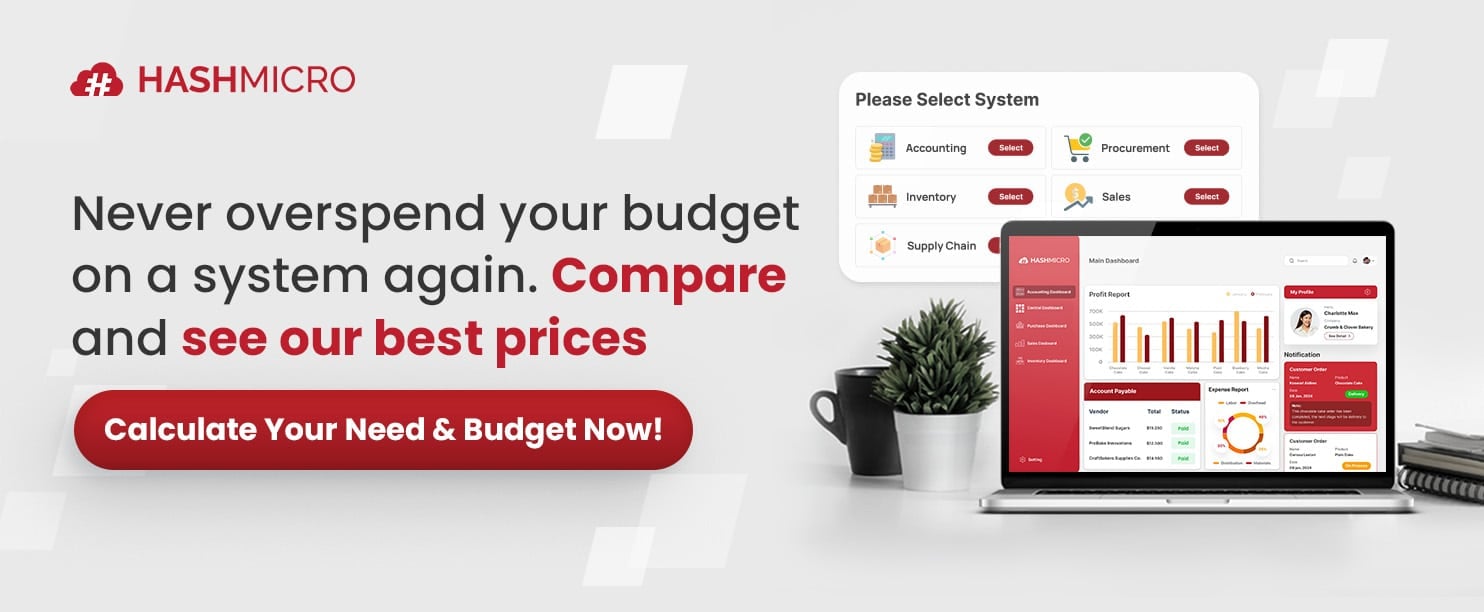In today’s rapidly evolving digital landscape, e-commerce customer management software is crucial in optimizing operations and improving customer experiences. Especially in Malaysia, where online retail is thriving, choosing the right software can give businesses a significant competitive edge.
This article highlights some of Malaysia’s top e-commerce customer management tools, examining their standout features, integration capabilities, and how well they support various business models and industry demands.
By the end of this guide, e-commerce businesses in Malaysia will gain valuable insights to help them select a platform that supports their current operations and scales with their long-term growth goals.
Table of Content
Content Lists

Key Takeaways
|
What is E-commerce Customer Software?
E-commerce customer software is designed to help businesses digitally manage the interaction or relationship between sellers and customers. E-commerce customer service is also known as an e-commerce customer management system.
CRM, or Customer Relationship Management system, allows companies to monitor, analyze, and improve customer experience online because it integrates various channels such as email, live chat, social media, and telephone into one platform.
Such integration allows support teams to manage inquiries more efficiently. The e-commerce customer service system also offers real-time centralized management of all interactions, order updates, and returns. It also provides personalized product recommendations and monitors service quality and customer satisfaction.
Why Must Malaysian Companies Use E-commerce Customer Software?
Before we review each of Malaysia’s best e-commerce customer software, we will briefly explain why Malaysian companies must implement it into their business processes.
Implementing e-commerce CRM software in Malaysia goes beyond embracing new technology — it’s a strategic move that can significantly impact a company’s profitability and market position. Below are key reasons why CRM systems are essential for Malaysian businesses, backed by insightful data from FounderJar:
- Increase in profits: CRM systems enhance sales by up to 29% and improve productivity by 34% by streamlining sales workflows, organizing data, and improving forecasting—ultimately driving higher earnings.
- Shorter sales cycle: Using CRM tools like e-commerce customer software can reduce the sales cycle by 8–14%, helping businesses lower sales expenses and achieve faster returns on investment.
- Revenue targets: 97% of businesses that use a CRM system met or exceeded their revenue sales target in the past year, and only 3% fell short. Moreover, companies that use a CRM are 86% more likely to exceed their sales goals than those that don’t.
On the flip side, e-commerce businesses that overlook customer software tools may experience several setbacks:
- Lost conversion chances: Without automation and insight-driven tools, e-commerce platforms may struggle to track leads effectively, resulting in abandoned carts and missed sales.
- Poor customer loyalty: Lack of personalization and timely support can lead to dissatisfied customers and lower repeat purchase rates.
- Inefficient operations: Without an integrated customer software system, managing service requests and order tracking raises costs and reduces efficiency.
E-commerce customer software improves interactions and drives efficiency and growth. Without it, Malaysian businesses may miss key opportunities. Competitors using these tools gain an edge through better customer experience and streamlined operations.
12 Best E-commerce Customer Software Recommendations for Businesses in Malaysia
We’ve gathered a selection of Malaysia’s 12 best e-commerce customer software options to help businesses choose the most effective solution. Each platform provides distinct features, advantages, and limitations, enabling you to evaluate and identify the one that best suits your online store’s customer service needs.
Here are our top recommendations for improving customer support, streamlining communication, and boosting overall efficiency in your e-commerce operations.
1. HashMicro
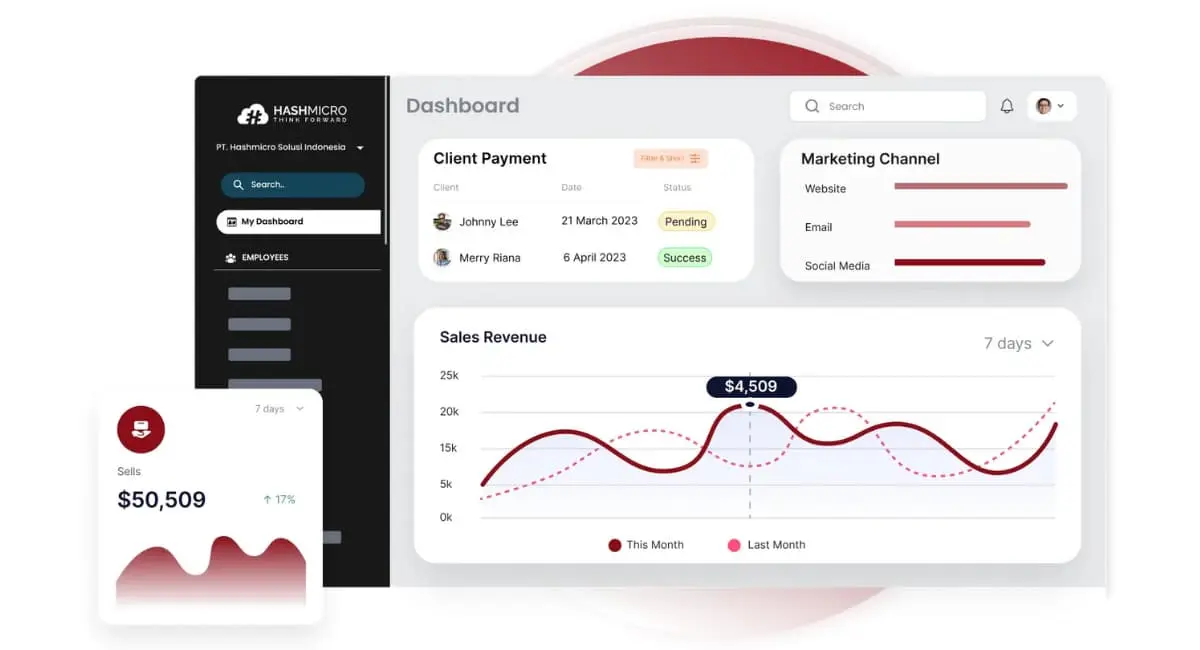
HashMicro’s E-commerce Customer Software is an advanced solution trusted by over 2.000 leading global companies. With a suite of 40+ specialized systems, HashMicro continues to be a reliable and adaptable choice across multiple industries.
Renowned brands like Forbes, Oishi, and Danone are among the clients that rely on HashMicro, reflecting the software’s strong reputation for performance and trustworthiness.
This e-commerce customer software stands out for its high level of flexibility, enabling businesses to adapt the platform according to their specific online workflows. Its smooth integration with the CRM system, external tools, and existing infrastructure ensures continuity while enhancing customer engagement and service.
Below are seven essential features that support e-commerce customer management:
- Sales estimation vs. real performance: This feature helps e-commerce businesses forecast expected revenue and compare it with actual sales results for more accurate planning and resource allocation.
- Sales commission automation: Automates commission calculations based on sales data, ensuring transparency and motivating e-commerce teams with accurate rewards.
- Customer segmentation with RFM metrics: By analyzing customer behavior based on recency, frequency, and monetary value, businesses can personalize offers and boost marketing effectiveness.
- Digital quote approval with e-signatures (Privy): This online feature speeds up sales workflows by enabling customers to view, approve, and sign quotations digitally without delay.
- Product recommendation engine: The software uses customer purchase history to suggest relevant products, increasing cross-sell and upsell opportunities in your online store.
- Mobile accessibility for sales teams: HashMicro’s system supports Android and iOS apps, allowing sales reps to manage tasks, customer data, and interactions for faster service.
- Tailored invoice and quote printing: Businesses can create custom quote formats suited to different customer profiles, making proposals more appealing and conversion-friendly.
| Pros | Cons |
|
|
2. SAP CRM
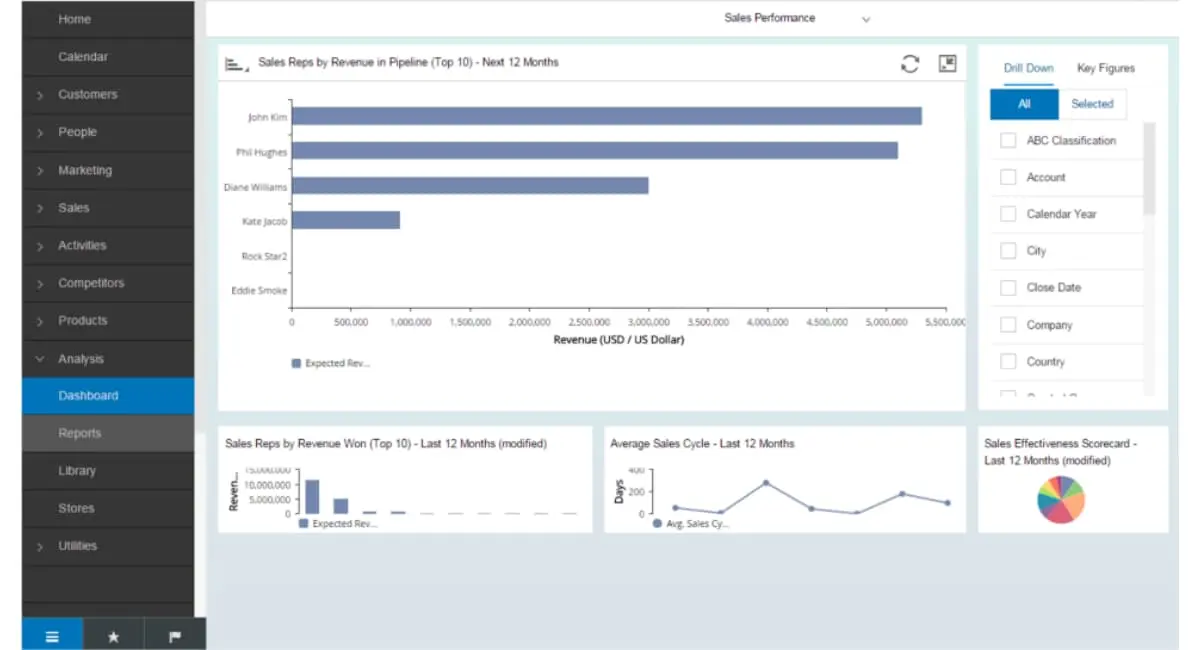
SAP CRM, included in the SAP Business Suite, offers businesses a complete view of their customers. It works smoothly with other SAP modules, such as SAP ERP and SAP HCM, ensuring unified department operations.
SAP CRM software is recognized for managing complex transactions and offering robust workflow features, making it ideal for large tech-driven companies and businesses with advanced customer interaction needs.
| Pros | Cons |
|
|
3. Zoho
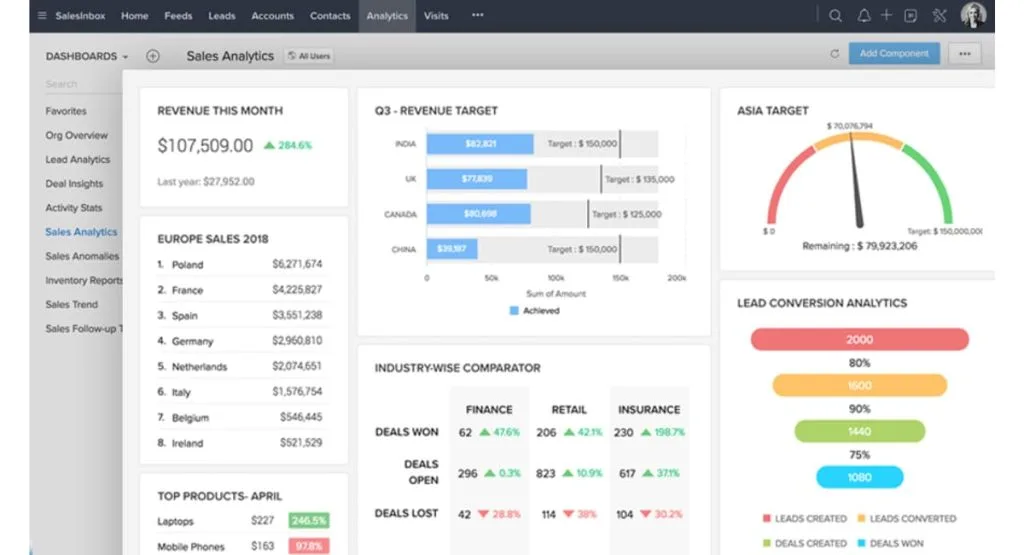
Zoho software offers an all-in-one platform for managing sales, marketing, customer support, and inventory. It is recognized for its intuitive design and adaptability and includes key tools like deal tracking, lead scoring, sales predictions, email campaigns, and social media integration.
It’s especially ideal for small businesses, thanks to a free plan for solo users or small teams and scalable pricing tiers for growing companies.
| Pros | Cons |
|
|
4. Pipedrive
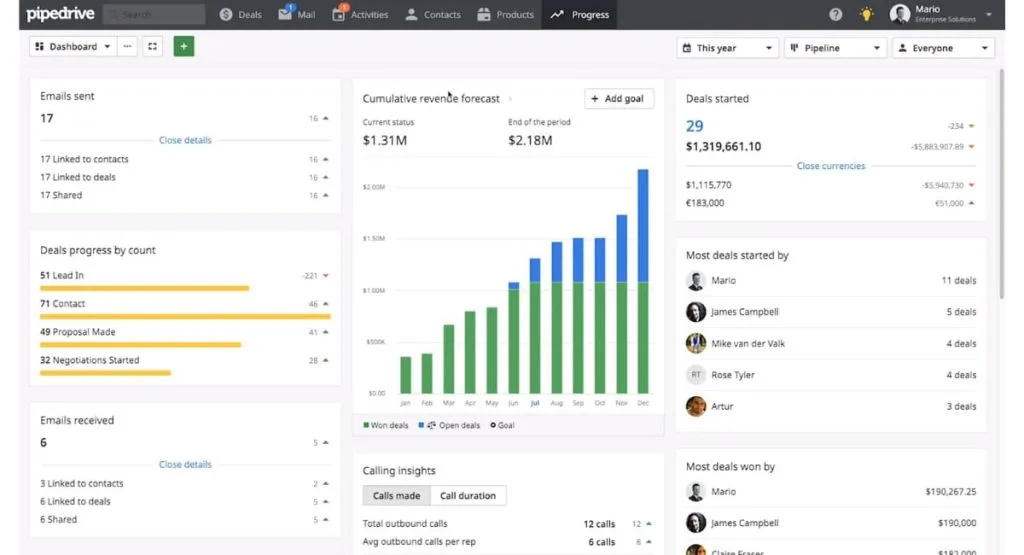
Pipedrive Sales CRM Software stands out for its easy-to-use design and flexible sales pipeline options. It offers tools like deal and lead tracking, email syncing, automated workflows, and an intelligent sales assistant powered by machine learning.
Built for simplicity, this platform fits businesses of any size aiming to simplify and enhance their sales processes.
| Pros | Cons |
|
|
5. Second CRM
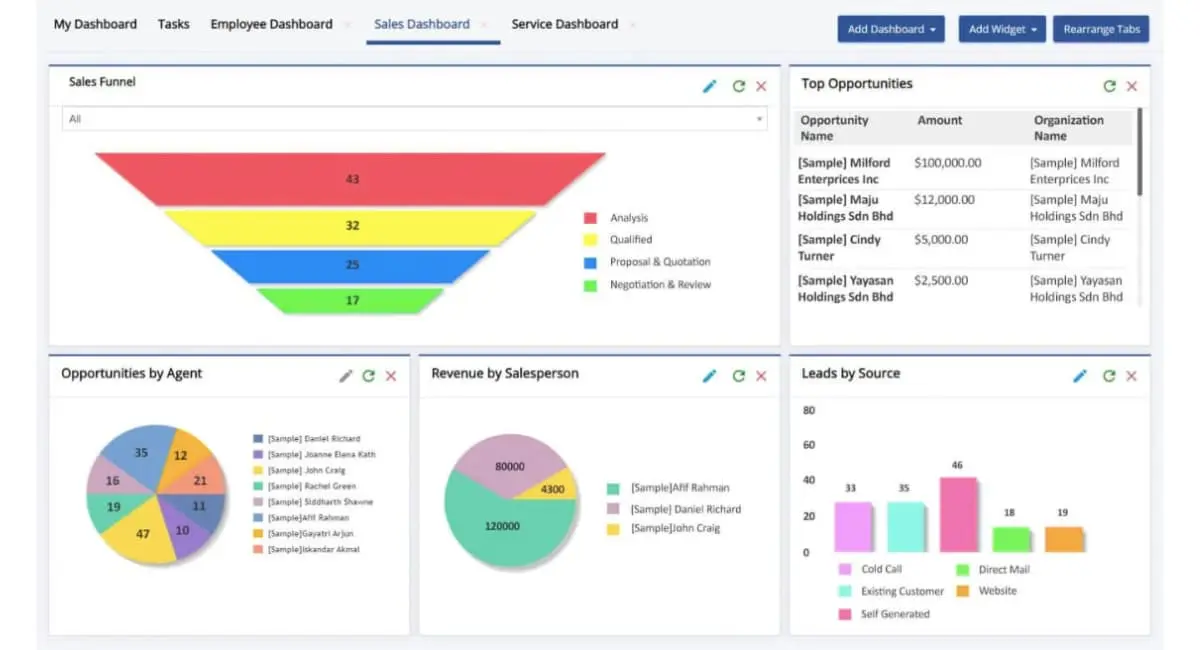
Second CRM aims to streamline operations for Malaysian businesses through features like sales automation, support services, and customer management. It also supports marketing automation, making it an all-in-one solution for enhancing customer engagement and boosting revenue.
The software stands out for its flexibility across industries and seamless integration with multiple business tools.
| Pros | Cons |
|
|
6. Monday Sales CRM
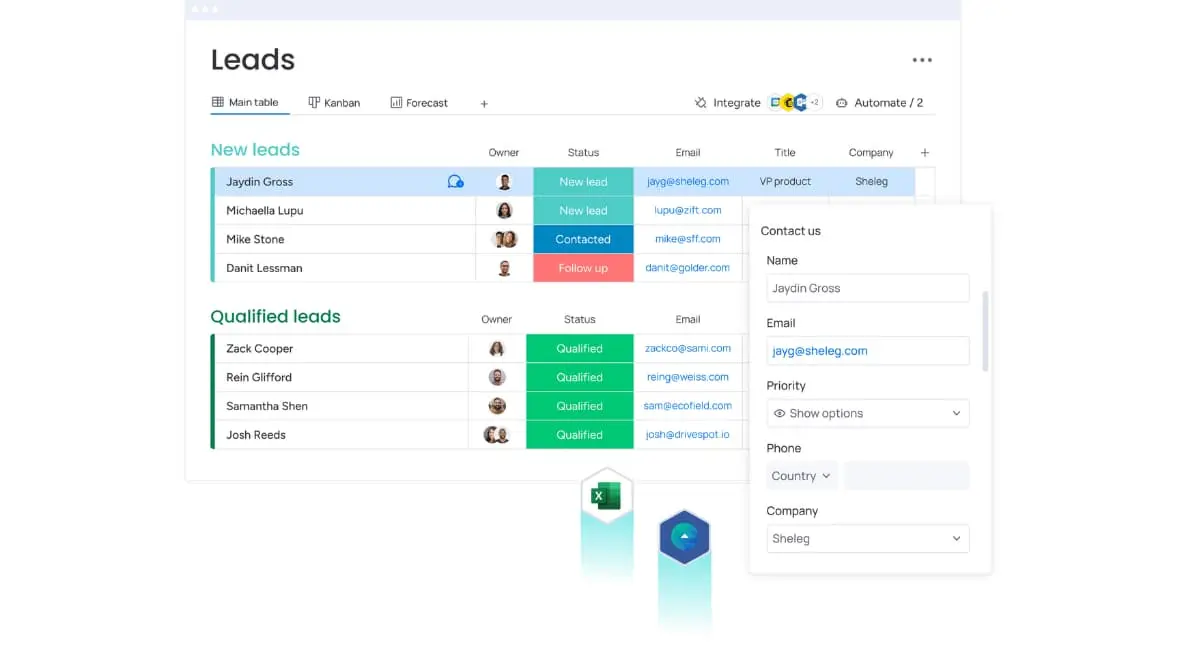
Monday Sales CRM offers a flexible and intuitive platform tailored for specialized industries like real estate, media, software, and finance. It helps streamline workflows by automating routine tasks, consolidating customer interactions, and managing data from a single dashboard.
| Pros | Cons |
|
|
7. Insightly
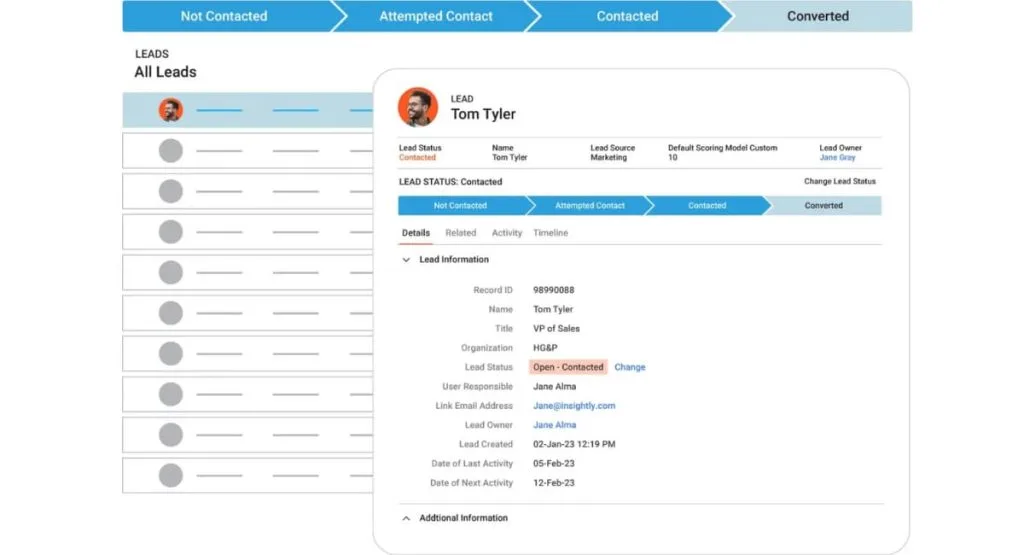
Insightly supports businesses in streamlining customer engagement and sales operations. It includes features for workflow automation, task and project tracking, email handling, and performance analytics. The platform is adaptable and can be integrated into diverse business environments, making it a flexible option for improving CRM functions.
| Pros | Cons |
|
|
8. Sugar CRM
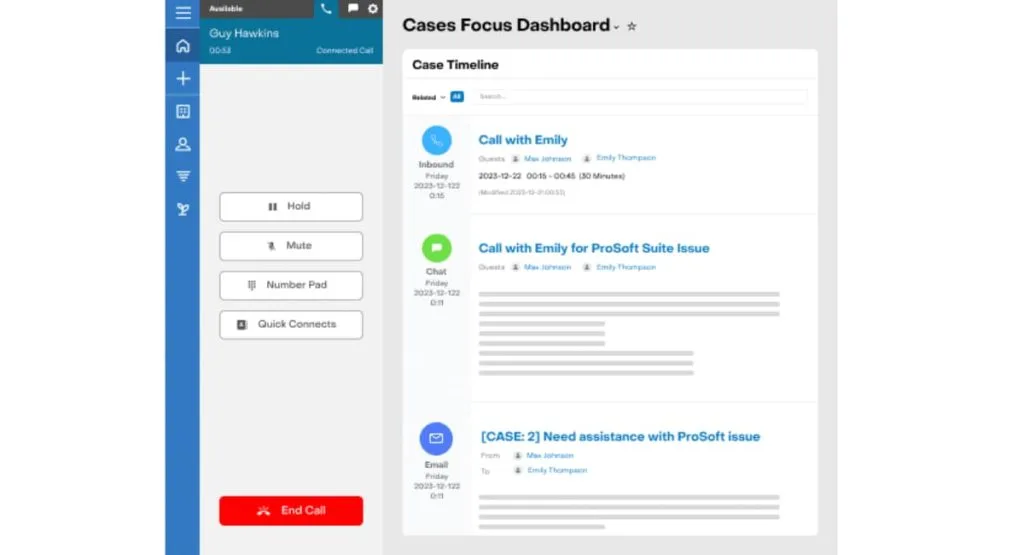
Sugar CRM Malaysia is a SaaS platform that combines tools for automating marketing, managing sales, handling customer support, and analyzing forecasts. It is highly customizable and user-friendly, positioning itself strongly in the CRM landscape.
It caters to businesses of various scales with multiple pricing options tailored to diverse operational requirements.
| Pros | Cons |
|
|
9. Salesforce CRM
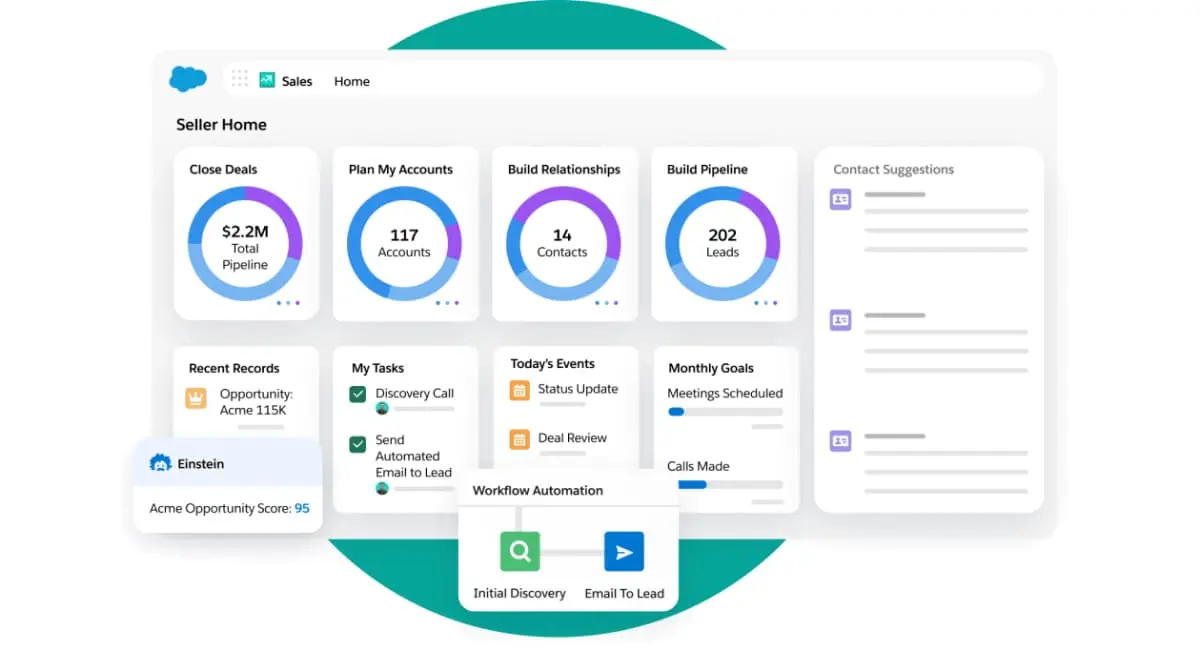
Salesforce CRM is a comprehensive platform that helps businesses oversee leads, clients, and contacts, boosting the ability to secure more deals. It has many highly customizable features, making it ideal for various industry needs.
This software integrates smoothly with other tools, offering companies a flexible and scalable CRM solution.
| Pros | Cons |
|
|
10. HubSpot CRM
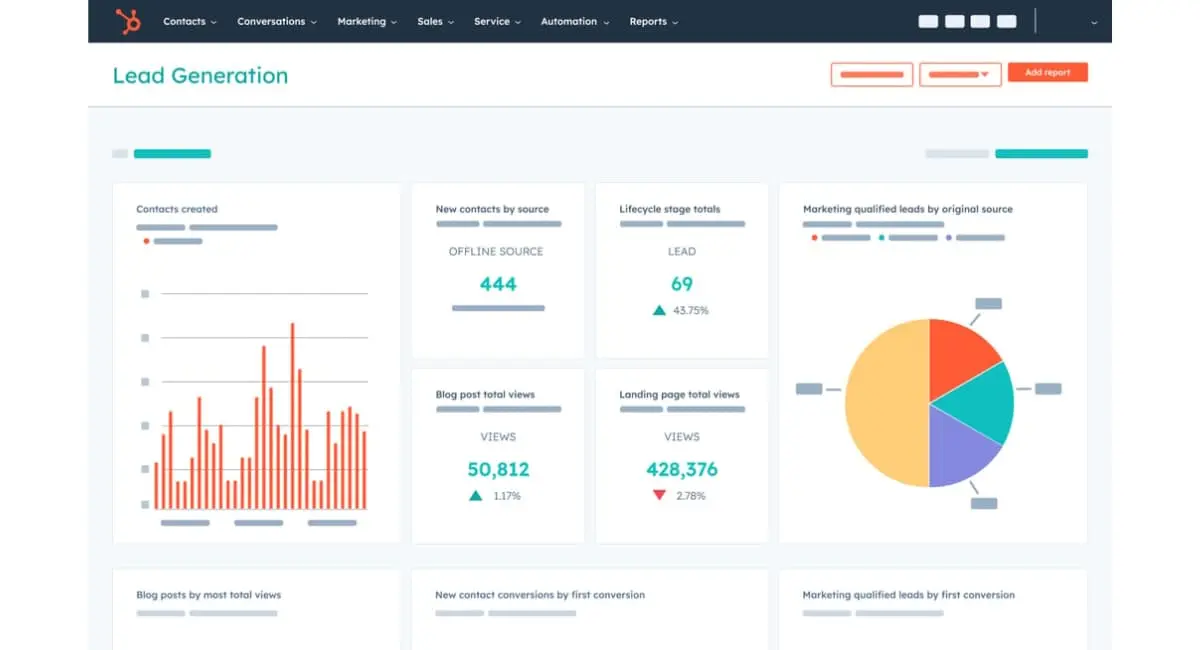
HubSpot simplifies sales activities with features like lead tracking, contact organization, pipeline management, and performance monitoring. Its user-friendly design and wide integration options make it a top pick for B2B and B2C businesses across many sectors.
HubSpot CRM provides a free version with core tools ideal for small businesses and upgradeable plans to support business growth.
| Pros | Cons |
|
|
11. Sage CRM
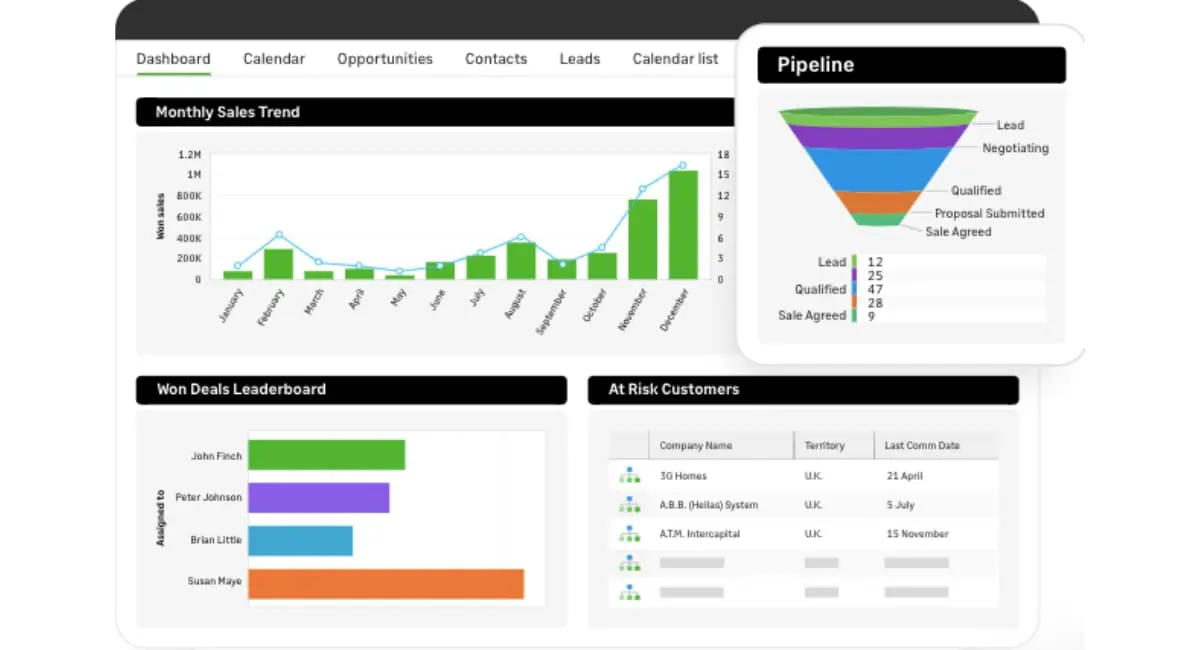
Sage CRM Software helps businesses streamline customer service, focus on key leads, and track customer activity across departments. It includes features for lead management, self-service support portals, product listings with quote tools, team collaboration, and customer survey building.
| Pros | Cons |
|
|
12. Microsoft Dynamics 365 CRM
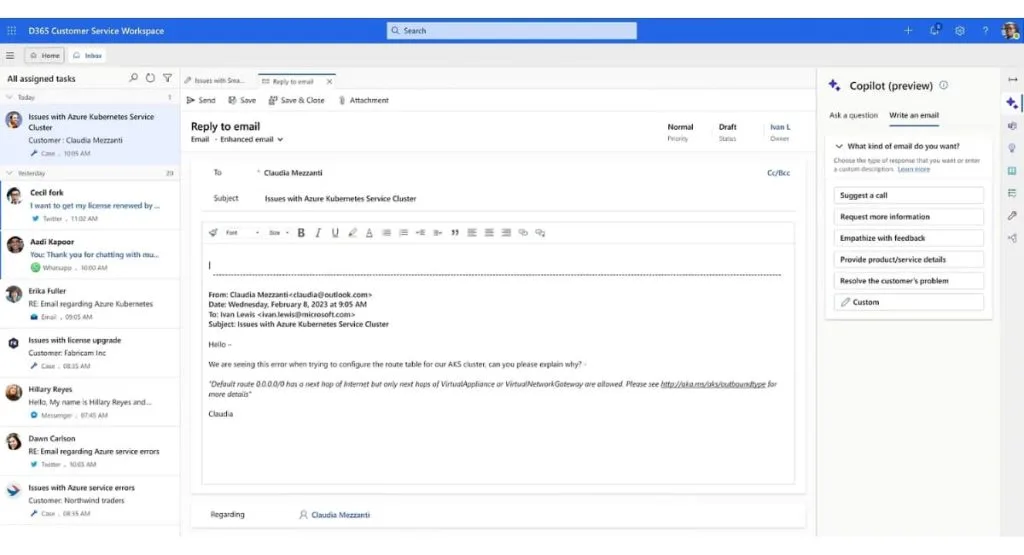
Microsoft Dynamics 365 delivers sales, marketing, and customer service tools as both cloud-based and on-premise options. It works smoothly with Microsoft apps, boosting efficiency and customer interaction. This platform stands out for its AI-driven sales tools, advanced marketing features, and strong integration with the broader Microsoft ecosystem.
| Pros | Cons |
|
|
How to Choose The Right E-commerce Customer Software for Your Business

After exploring 12 e-commerce customer service software options in Malaysia, it’s normal to feel unsure about which best fits your business. Selecting the right solution is crucial, as it directly affects how effectively you manage customer interactions and influences your business growth.
Below are several essential factors in choosing the right e-commerce customer software:
- Customization and integration: Choose an e-commerce CRM system tailored to your operations and seamlessly integrate it with existing platforms like e-commerce stores.
- Scalability: Pick an e-commerce customer support software solution that can scale as your e-commerce business grows, with the flexibility to add users, channels, or features over time.
- Cost considerations: Evaluate the complete cost of ownership, including setup, user training, customization, and subscriptions, to ensure it delivers substantial value and fits your budget.
- Trial and demo: Before deciding, use free trials and live demos to test the software’s usability, compatibility, and overall fit for your e-commerce processes.
- Identify business needs: Evaluate your company size, support strategies, customer engagement methods, and service complexity to determine the essential features required.
- Vendor support and training: Reliable vendor assistance, including training materials, onboarding help, and responsive customer service, ensures long-term software success.
- Software credibility: Check for genuine user reviews from businesses in Malaysia or similar industries on trusted sites to understand the software’s real-world effectiveness. It impacts on improving customer satisfaction and sales performance.
By thoughtfully assessing these factors, e-commerce businesses in Malaysia can choose customer support software that aligns with their present operations while also accommodating future growth.
HashMicro’s E-commerce Customer Software delivers a complete solution to improve your online business’s customer interactions and support management. It is integrated with innovative features, helping to centralize communication channels and automate service processes.
Whether looking for better engagement tracking or seamless integration with your e-commerce platform, HashMicro’s system is built to support your business goals. Curious to see how it works? Click the banner below to discover its key features and pricing details.
Conclusion
Selecting the right e-commerce customer software is crucial for Malaysian businesses seeking to improve customer experiences and boost sales performance. Choosing a system that matches your operational needs, scales with growth, and comes with reliable support is essential.
HashMicro’s E-commerce Customer Software stands out with its proven results, wide range of configurable features, and smooth integration with existing platforms. It fulfills all key requirements for a reliable e-commerce support solution, making it a strong option for businesses aiming to elevate customer engagement.
We invite you to explore HashMicro’s free demo today. See how this software can enhance your customer service processes and support your business growth.
Frequently Asked Questions
-
What is software in e-commerce?
E-commerce software is a stand-alone program or software suite that enables you to sell your products and services online. It streamlines all of your processes, from inventory to sales, through the backend, and it makes it easy for customers to buy from the front end, which is your website.
-
What is CRM in e-commerce?
CRM combines practices, strategis, and technologies that companies use to manage and analyze customer interactions and data throughout the customer lifecycle. The goal is to improve customer service relationships, increase customer retention, and drive sales growth.
-
What is a software agent in e-commerce?
“Software agents” distinguish them from hardware agents (robots) or human agents. A software agent stays in the computer, can move in the networks, can observe its environment, and can take several actions to reach its goals.





